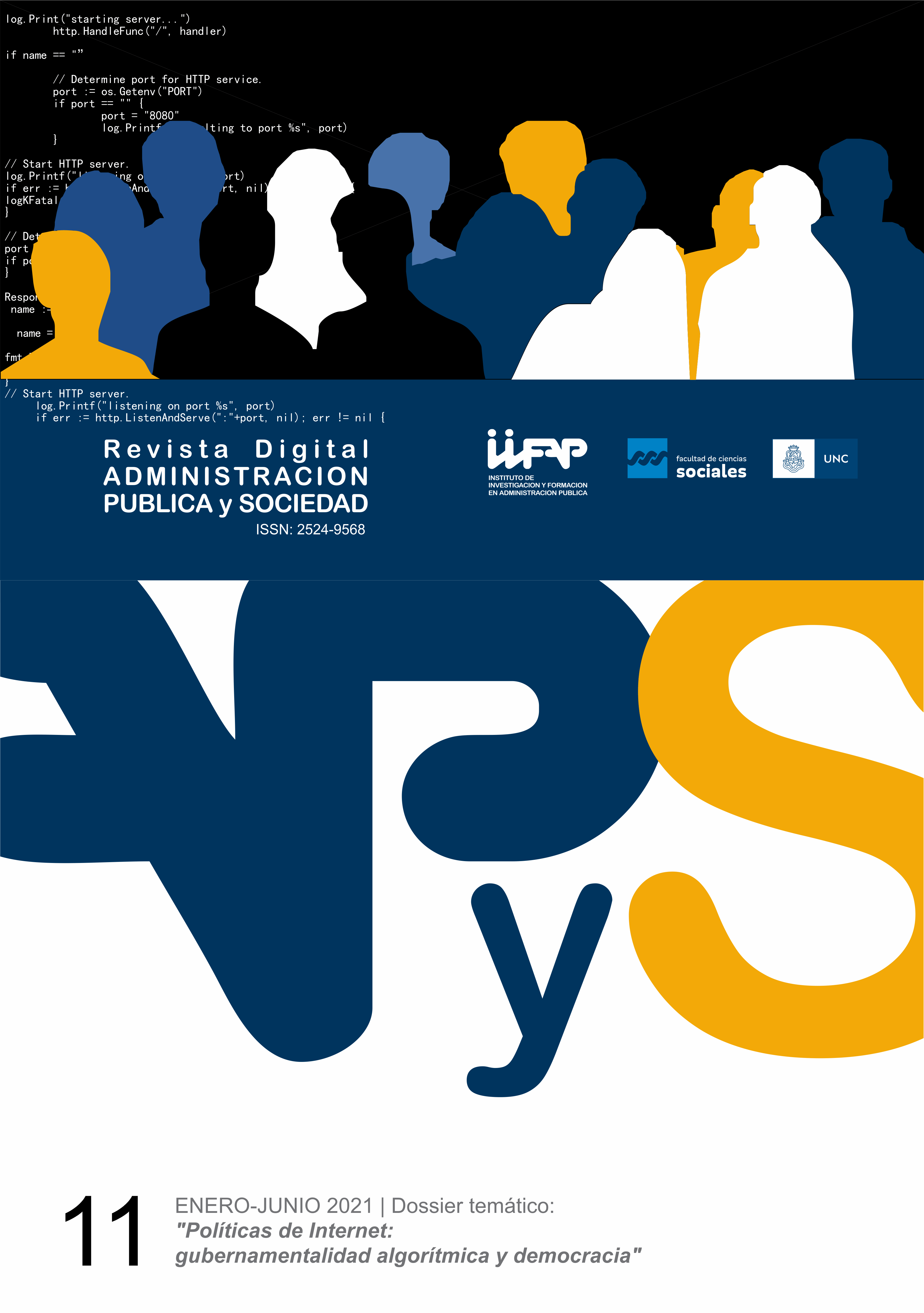The agro-political-economic arrangements institutionalized by extractivisms and neoextractivisms: reflections about the case of the flexbilization of brazilian legislation (1999-2019)
Main Article Content
Abstract
Latin America has a long history of exploration, based on the last decades, mainly, of its goods and natural resources, through the export of agricultural and biofuel commodities. It is from this assumption that part of the analysis of extractivism and new extractivisms or neoxtrativisms to identify how the idea of exploitation of Brazilian natural resources is reflected in the search for flexibility in its legislation regarding pesticides and the like, with the adoption of the Bill nº 6.299/02, better known as “PL of the Poison” or “Pack of the Poison”. Therefore, the objective of the article seeks to demonstrate how extractive processes are rooted in Brazilian agricultural culture, which, due to this context of global dependence, intensifies production through monocultures and reinforces the use of agrochemicals, a factor that directly reflects in the legislation on the subject. This production model, however, is carried out at the expense of the country's human and environmental cost. Thus, the present work is eminently qualitative, through the deductive approach. Documentary technique and bibliographic review are used for data analysis. Through the results of the research, it is possible to observe several institutional arrangements, which allow the deepening of extractive practices and the flexibility of Brazilian legislation. It can be seen that the legislative apparatus is arranged in such a way as to allow and contribute to agro-strategies. The permissiveness of the Brazilian State contributes to the worsening of social and environmental issues.
Article Details

This work is licensed under a Creative Commons Attribution-NonCommercial-ShareAlike 4.0 International License.
Authors who publish in this journal accept the following terms of the copyright policy:
- Authors shall retain their copyright (including copyrights) and shall grant to the journal the right of first publication of their work, which shall simultaneously be subject to the Creative Commons Recognition License: No commercial use of the original work or any derivative works is permitted, distribution of which must be made under a license equal to that which governs the original work.
- Authors may adopt other non-exclusive license agreements for the distribution of the version of the published work (e.g., placing it in an institutional repository or publishing it in a book) provided that the initial publication in this journal is indicated.
- Authors are allowed and encouraged to disseminate their work through the Internet (e.g., in institutional repositories or on their website) after the publication process, which may lead to interesting exchanges and increased citations of the published work. (See The Effect of Open Access).
How to Cite
References
ABRASCO; ABA (2018). Dossiê Científico e Técnico: contra o Projeto de Lei do Veneno (PL 6.229/2002) e a favor do Projeto de Lei que institui a Política Nacional de Redução de Agrotóxicos – PNARA. Rio de Janeiro: ABRASCO, ABA. Recuperado de https://www.abrasco.org.br/site/wp- content/uploads/2018/05/Dossi%C3%AA_PL-Veneno_PL-PNARA_Final-1.pdf.
ACOSTA, Alberto; BRAND, Ulrich (2018). Pós-extrativismo e decrescimento: saídas do labirinto capitalista. Trad. Tadeu Breda. São Paulo: Elefante.
ALMEIDA, Alfredo Wagner Berno (2010). Agroestratégias e desterritorialização: direitos territoriais e étnicos na mira dos estrategistas do agronegócio". En: Capitalismo globalizado e recursos territoriais (pp. 101-144). Rio de Janeiro: Lamparina.
ALMEIDA, Alfredo Wagner Berno (2010). Direitos territoriais e étnicos: as estratégias dos agronegócios na Amazônia. En: Andréa Zhouri, Klemens Laschefski (Org.). Desenvolvimento e conflitos ambientais (pp. 382-387). Belo Horizonte: UFMG.
ANVISA. Agência Nacional de Vigilância Sanitária (ANVISA). Programa de Análise de Resíduo de Agrotóxico em Alimentos (PARA). Relatório das Amostras Analisadas no Período de 2017-2018. Brasília, 2018. Recuperado de https://www.gov.br/anvisa/pt-br/assuntos/agrotoxicos/programa-de- analise-de-residuos-em-alimentos/arquivos/3770json-file-1.
BERNAL-MEZA, Raúl (2016). “China y América Latina: de la oportunidad al desafío”. Revista tempo do mundo – rtm, v. 2, nº 2.
BRASIL (1988). Constituição da República Federativa do Brasil de 1988. Recuperado de http://www.planalto.gov.br/ccivil_03/Constituicao/Constituicao.htm.
BRASIL (2002). Decreto nº 4.074, de 04 de janeiro de 2002. Recuperado de http://www.planalto.gov.br/ccivil_03/decreto/2002/D4074.htm.
BRASIL (1989). Lei nº 7802, de 11 de julho de 1989. Recuperado de http://www.planalto.gov.br/ccivil_03/LEIS/L7802.htm.
BRASIL. Projeto de Lei nº 6.299 de 2002. Recuperado de https://www.camara.leg.br/proposicoesWeb/fichadetramitacao?idProposicao=46249.
BRASIL (1999). Projeto de Lei do Senado nº 526 de 1999. Recuperado de https://www25.senado.leg.br/web/atividade/materias/-/materia/41703.
CÂMARA DOS DEPUTADOS (2020). Entenda o processo legislativo. Recuperado de https://www.camara.leg.br/entenda-o-processo-legislativo/.
CÂMARA DOS DEPUTADOS (2020). Projetos de lei e outras proposições. Recuperado de https://www2.camara.leg.br/comunicacao/assessoria-de-imprensa/projetos-de-lei-e-outras- proposicoes.
CRESWELL, John W (2010). Projeto de pesquisa: métodos qualitativo, quantitativo e misto. Trad. Magda Lopes. 3 ed. Porto Alegre: Artmed.
GIL, Antonio Carlos (2008). Métodos e técnicas de pesquisa social. 6 ed. São Paulo: Atlas.
GUDYNAS, Eduardo (2012). “Estado compensador y nuevos extrativismos. Las ambivalências del progressismo sudamericano”. Nueva Sociedad, nº 237, 128-146.
HESPANHOL, Antonio Nivaldo (2008). Modernização da Agricultura e Desenvolvimento Territorial. 4º Encontro Nacional de Grupos de Pesquisa – Engrup, São Paulo, 370-392 (artículo).
NUNES, Sidemar Presotto (2007). O desenvolvimento da agricultura brasileira e mundial e a ideia de Desenvolvimento Rural. Deser – Departamento de Estudos Socio-Econômicos Rurais. nº 157.
SENADO FEDERAL (2020). Entenda a tramitação de um projeto de lei no Congresso Nacional. Recuperado de https://www12.senado.leg.br/radio/1/noticia/entenda-a-tramitacao-de-um-projeto- de-lei-no-congresso-nacional.
SVAMPA, Maristella (2012). “Consenso de los Commodities, Giro Ecoterritorial y Pensamiento crítico en América Latina”. Consejo Latinoamericano de Ciencias Sociales Movimientos Socioambientales en América Latina, Buenos Aires, nº 32, 1-25.
SVAMPA, Maristella (2019). Las fronteras del neoextractivismo en América Latina: conflictos socioambientales, giro ecoterritorial y nuevas dependencias. Alemanha: Calas.
VIEIRA, Pedro Abel; et al (2016). “O Brasil alimentará a China ou a China engolirá o Brasil?” Revista tempo do mundo – rtm, v. 2, nº 1.
WIENKE, Felipe Franz (2018). Em busca de caminhos para a transição agroecológica: as estratégias de pagamento por serviços ambientais como mecanismo político-jurídico para a produção agrícola sustentável no direito brasileiro e comparado. En: FERREIRA, Heline Sivini; LEITE, José Rubens Morato. Direito e Sustentabilidade na era do Antropoceno: retrocesso ambiental, balanço e perspectivas. São Paulo: Inst. O direito por um Planeta Verde (Série Prêmio José Bonifácio de Andrada e Silva).

